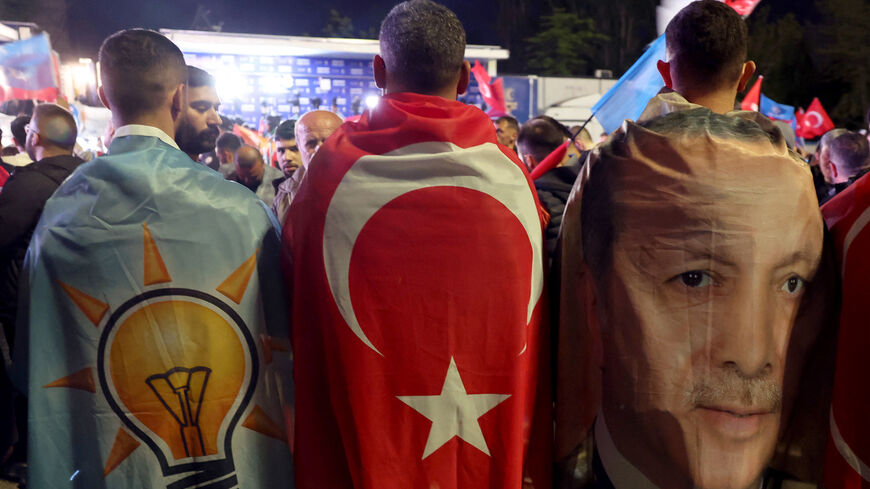ANKARA — In a historic first, Turkey’s far right and the largest Kurdish political movement rallied behind main opposition leader Kemal Kilicdaroglu in a bid to unseat Turkish President Recep Tayyip Erdogan, but it remains unclear whether Kilicdaroglu can turn the tide against his rival with less than 74 hours to go to until Sunday’s runoff.
Turkey’s pro-Kurdish party announced on Thursday that it would continue to endorse Erdogan’s rival, refuting speculation that the far right’s support for Kilicdaroglu would cost him Kurdish support.
Following the far right’s unexpected success in the first round of the elections, Kilicdaroglu struck a deal with Umit Ozdag, a far-right politician who has become an emblematic name of the anti-refugee sentiment in the country. The deal involves provisions that can potentially alienate Kurdish voters who solidly supported Kilicdaroglu in the first run.
Following two-day internal discussions, however, leaders of Turkey’s largest Kurdish political bloc held its nose and reiterated their endorsement for the main opposition leader. Speaking in a press conference, Pervin Buldan, co-chair of the Peoples’ Democratic Party (HDP), called on the party's supporters to vote for Kilicdaroglu. “We'll head to the polls unabridged and together we'll change this one-man rule,” she said. “Erdogan can never be an option for us. The only option is to change him.”
In addition to sending refugees back to their homelands and combating terrorism, the deal between Kilicdaroglu and Ozdag, leader of the Zafer (Victory) Party, also paves the way for the continuation of a current practice targeting elected HDP members. As part of the Erdogan government’s heavy-handed crackdown, dozens of elected local HDP officials were replaced by government-appointed trustees over their alleged ties to the outlawed Kurdish militants who have been waging an armed campaign against the Turkish state for self-rule. Contrary to the current governmental practice, the main opposition’s deal requires elected officials’ links with outlawed groups to be established by courts before they lose their positions.
The deal, which was announced by Kilicdaroglu and Ozdag at a joint presser on Wednesday, has prompted speculation that it could lead Kurdish voters to protest the polls in the second round. Kilicdaroglu received nearly 80% of the votes in the country’s predominantly Kurdish southeast, and Kurdish votes remain critical for the main opposition leader, who finished the first round behind Erdogan by nearly 5 points.
Ozdag’s party received more than 2% of the votes in the parliamentary elections. Far-right candidate Sinan Ogan, who was fielded by the Ozdag-led electoral alliance, received more than 5% on May 14 and endorsed Erdogan earlier this week. It remains unclear to what extent Ozdag’s and Ogan’s counter-endorsements will impact runoff results. A new Al-Monitor/Premise poll this week showed that Erdogan and Kilicdaroglu are locked in a statistical tie, but a significant portion of voters remain undecided.
Speaking on Thursday, HDP leaders didn’t shy away from criticizing the deal. “Those who obstruct Kurds’ political will through trustees also obstruct the rights and freedoms of all Turkey’s peoples,” Buldan said. “It is wrong and inhumane to exploit immigrants and refugees for political interests.”
Ozdag, who has raised his profile by riding the anti-refugee sentiment in society, is a former member of the Nationalist Movement Party, which is allied with Erdogan’s electoral alliance. His hawkish stance vis-a-vis the Kurdish movement is well known. In a video widely circulated on social media during the campaign before Wednesday's deal, Ozdag is seen challenging an HDP voter, saying, “You don’t look like a murderer.”
Yet opposition to Erdogan will likely outweigh other conflicts in the runoff, according to Roj Girasun, the coordinator of Rawest, a polling company based in Diyarbakir, the largest province in Turkey’s predominantly Kurdish southeast. Girasun said the HDP’s position will play a key role in maintaining voters’ support for Kilicdaroglu. “The motivation to vote against Erdogan is still strong,” he told Al-Monitor.
“Eventually, it was largely the HDP’s guidance that directed the Kurdish votes to Kilicdaroglu,” he added.
Turkey — with one of the highest election turnout rates globally — will hold a runoff vote for the presidential elections for the first time in its history. Presidential runoffs usually see a lower election turnout, worldwide statistics show. Accordingly, analysts think the more than 87% turnout witnessed in the first round could slightly drop in the runoff.
Yet Girasun pointed out that a potential decline cuts both ways. “The turnout may be slightly lower, but this applies to voters on both sides,” he said.






